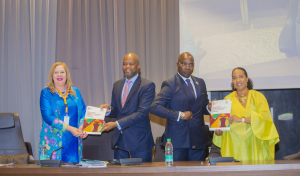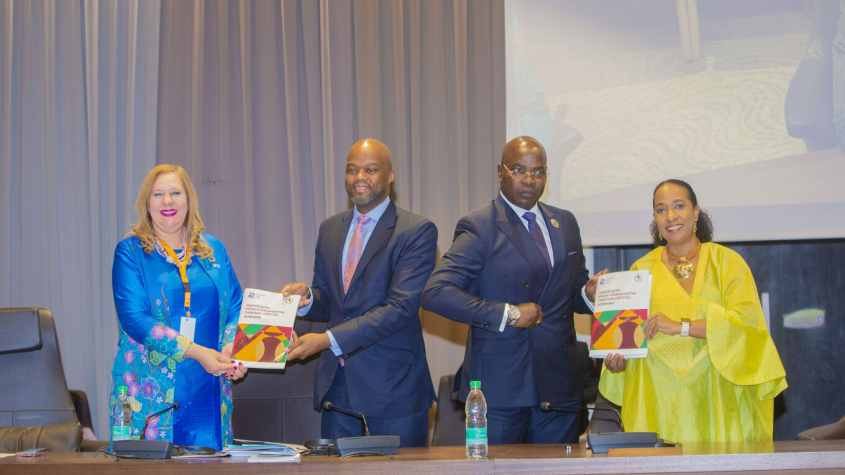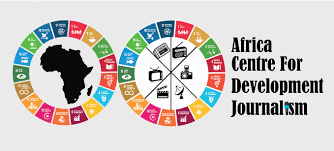AIW2022: AfCFTA, ITC launch AfCFTA glossary
As part of activities for the 2022 Africa Industrialisation Week (AIW2022), the African Continental Free Trade Area (AfCFTA) Secreteriat, in partnership with the International Trade Center (ITC), on Thursday launched the AfCFTA glossary, alongside a private sector mapping of firms and the business ecosystem that supports them.

Mr Wamkele Mene, secretary general of the AfCFTA Secretariat, said the AfCFTA glossary, which was meant to unpack the legal agreement for small businesses, would create a business-friendly environment for MSMEs under the AfCFTA regime and assured of a meaningful partnership with the ITC towards ensuring that the implementation of the Agreement moves beyond the responsibility of governments, into a partnership with the private sector to create the desired outcome.
The AfCFTA glossary clearly spell out the legal agreement for SMEs while the private sector mapping and profiling exercise covers the characteristics, competitiveness and constraints of African firms and the performance interconnectedness of regional business support organizations, towards realizing an all-inclusive delivery of the AfCFTA, especially for women and youth-led enterprises.
To this end, Mr Mene said the AfCFTA Secretariat will in 2023 roll-out an SMEs-targeted programme to better educate SMEs and create awareness of the benefits of the AfCFTA among them, particularly how they can export their products and services under the terms of the FTA, in a sustainable manner, as well as the potential challenges SMEs may face in the course of the Agreement’s implementation.
“We have a very strong commitment to ensuring that the Protocol on Women and Youth in Trade reflects the interest, desires and aspirations of enterprises that are led by women and young people and that it has achieved the objective of qualifying into legal binding obligations, the aspirations that we all desire to see: women and youth become the drivers of Africa’s economy,” Mr Mene said.
Ms Pamela Coke-Hamilton, executive director of the ITC, said although MSMEs formed the backbone of the African economy, they will not be able to participate in the AfCFTA market unless they were exposed to the opportunities to build stronger business ecosystems and scale-up to the standard of the FTA, thus becoming more connected, sustainable and inclusive, which is necessary for the actualization of the Agreement’s core objectives.
Ms Coke-Hamilton said the ITC and AfCFTA Secretariat had earlier this year signed a partnership agreement for a joint commitment to work collaboratively towards ensuring AfCFTA implementation works for the African private sector, which has translated into two remarkable projects, namely an AfCFTA glossary and mapping of the African private sector.
“The glossary serves as the first point of reference on the AfCFTA for the African business community; it defines almost 100 complex legal terms in simple business-friendly languages, and the resource will be available to everyone willing to trade in Africa. It is inclusive of women and young people – they should have a full understanding of what the agreement means to them so as to improve the business environment among AfCFTA States Parties.
“The mapping of the African private sector sets out the profile of firms and business support organizations across the continent and analyze their competitiveness and constraints, as well as business ecosystem performance. In 2023, ITC is committed to expanding and enriching the mapping exercise to reach all African countries, with specific emphasis on the four priority areas of the AfCFTA value-chains: automobiles, pharmaceuticals, agro-processing and logistics,” the ITC director assured.
The African private sector mapping reveal 75% of businesses in Francophone Africa were oblivious of the AfCFTA while only 32% of African firms report having a business website, with women-led firms less likely to have one. Moreover, 42% of African exporting firms invest heavily in research and development, compared to only 24% of non-exporting firms, which shows exporting firms are more likely to innovate.
It was against the backdrop that the AfCFTA-ITC joint project seeks to understand the challenges being encountered by small businesses on the continent and work towards building an enabling environment where businesses can thrive for the seamless operation of the AfCFTA.
The AfCFTA glossary explains 100 AfCFTA-related technical terms to help small firms to better understand what the Agreement means for them. It is available in English with plans for French, Arabic and Portuguese versions. Whereas the African private sector mapping is a result of thousands of ITC-led surveys and interviews with SMEs and Business Support Organizations (BSOs) across the continent, covering the characteristics, competitiveness and constraints of African firms, and the performance and interconnectedness of regional BSOs.














